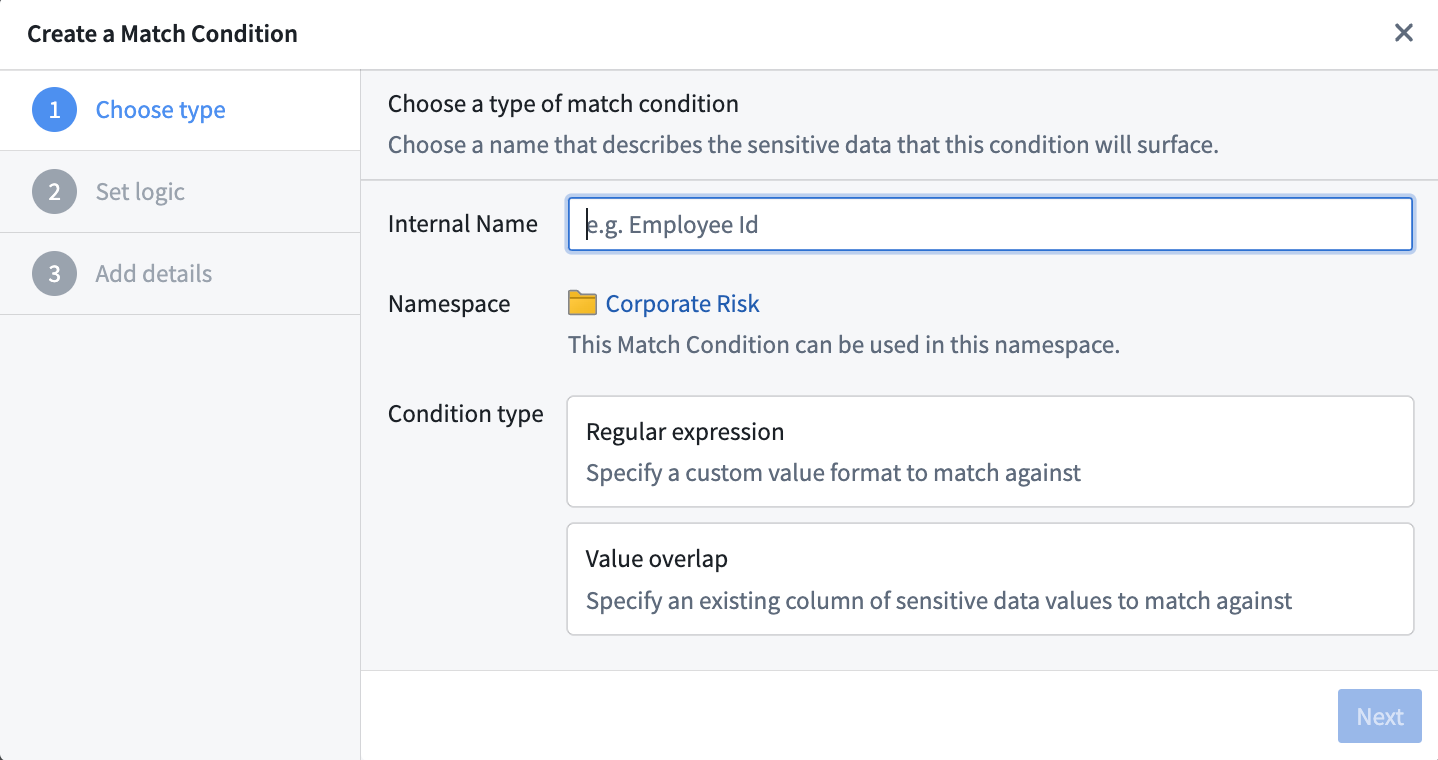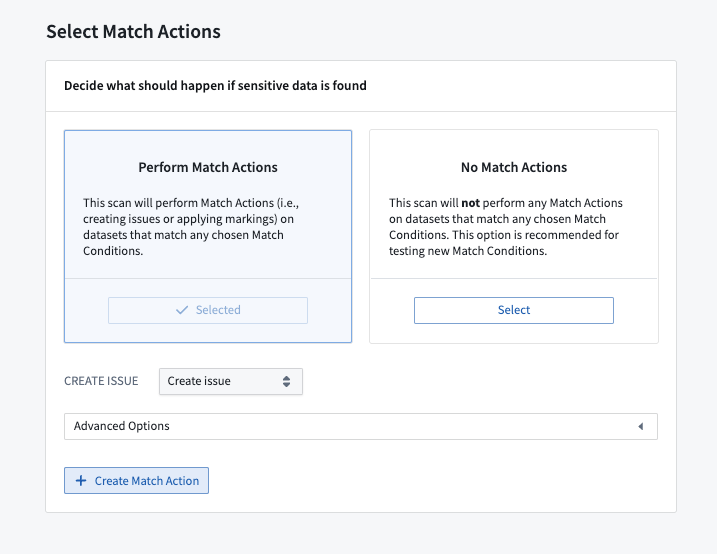Core concepts
Sensitive Data Scanner is built on the core concepts of match conditions, match actions, and scans. Scans can be either one-time or recurring.
Match conditions
Match conditions are predefined patterns that Sensitive Data Scanner uses to identify sensitive data based on data format or values. There are two types of match conditions:
- Regular expression match conditions: A match condition that is specified via regular expression (regex). A regular expression is a sequence of characters representing patterns for matching text. For users unfamiliar with regular expressions, AIP can help create valid regular expressions that match the desired sensitive data.
- Overlap match conditions: An overlap match condition allows users to search for exact duplicates of predefined sensitive data (such as a list of names) by matching against the values in a column in an existing Foundry dataset already known to contain such data.

Users can create their own custom match conditions to cover the types of personally identifiable information (PII) they care about. Sensitive Data Scanner also provides a range of predefined built-in match conditions to detect common types of PII, such as Social Security numbers, e-mail addresses, and phone numbers.
Match actions
Match actions allow users to define automated actions for how sensitive data should be handled in-platform. Users can perform two types of match actions:
- Create Issues: Users can set up a match action to create Issues on columns where a match is found, which enables governance teams to manually review and triage matches detected by Sensitive Data Scanner.
- Apply Marking(s): Users can apply one or more Markings to any dataset where a match is found in order to ensure access controls.

One-time scans
A one-time sensitive data scan performs a single search of the datasets selected by the user based on the match conditions and performs the specified match actions on any matches. One-time scans are helpful to identify data already in Foundry which is not in line with an organization’s data governance policy.
Recurring scans
A recurring sensitive data scan is similar to a one-time scan, except that a recurring scan takes place whenever new data is added to the datasets selected by the user. Recurring scans can provide ongoing and continuous assistance in identifying potentially non-compliant data, even as new data is added to the platform.